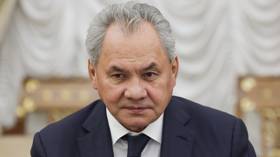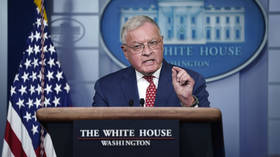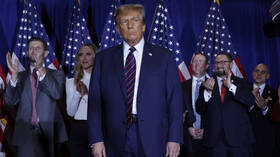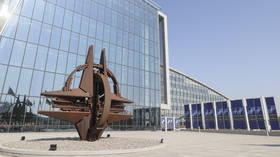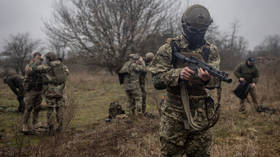Arab states are making nice with Assad’s Syria. Will the West follow suit?
Attempts by Arab states to mend ties with Damascus serve to bolster the Syrian government’s victories on the ground and may well see the West changing its attitude towards the country, Middle East experts have told RT.
The first sign of a thaw between Syria and its Arab neighbors came earlier in December when Sudanese President Omar Bashir visited Damascus. It was followed by Wednesday’s report that the Arab League may readmit Syria into the 22-member bloc sometime next year, and the announcement by the UAE on Thursday that it’s reopening its embassy in the Syrian capital.
Damascus was kicked out of the Arab League in 2011 as President Bashar Assad was accused of atrocities against his people. Saudi Arabia, the UAE and other Arab states have been actively pushing for the removal of Assad from power during the years of the deadly war, and had been slammed by Damascus on numerous occasions for their support of armed extremists fighting against the Assad government.
Also on rt.com Trump says ‘we have defeated ISIS’ as US starts withdrawal from SyriaYet, the desire for rapprochement with Damascus now “is not a manifestation of brotherly love to [Syrian president Bashar] Assad,” Sergey Balmasov, of the Institute of the Middle East, believes. Those moves are dictated by the situation on the ground, where Damascus now controls most of the country’s territory.
For many Arab nations politics is like trade; it’s just business.
“They are now thinking: ‘Well, we couldn't remove Assad and we lost a lot of money on it, but we’ll lose even more if we keep not recognizing him.”
A similar stance was shared by Middle East expert Andrey Ontikov, who said that for the Arab states it’s now “obvious that they’d have to deal with Assad and the current Syrian authorities in any case as they’ll keep playing an important role in the political life of the country.”
Saudi Arabia, UAE and others simply remembered that “when one can’t cope with the problem it’s easier for him to tame it by acting [within] the existing circumstances,” he added.
Yet by mending ties and “bringing their money into Syria, the Gulf States may achieve what they couldn’t do militarily,” Balmasov cautioned.
Syria had previously rejected Arab assistance in post-war reconstruction, saying that the country shouldn't be rebuilt by those who worked to destroy it. But this may well change, as Damascus may well need any and all help to rebuild the ravaged country. Balmasov pointed out that, with their investment, Arab states might also seek to diminish Iran’s influence in the country.
Those who’ll take responsibility for the reconstruction will gain more influence in Syria.
It’s also no coincidence that the Arab League began moving towards Syria shortly after US President Donald Trump announced the withdrawal of American troops, as now there is a “real chance of the Syrian government taking control of almost all of the country’s territory,” Konstantin Truevtsev, of the Center for Arabic Studies, said.
After the Americans depart, those areas in northern Syria will fall under the control of the Kurds, who “would have no other way than to find common ground with Damascus,” Ontikov pointed out. “It’s just a question of time.”
Also on rt.com Christmas in Daraa: Syrian town celebrates after liberation from militants (VIDEO)Syrian government forces are already on the outskirts of the city of Manbij in the province of Aleppo, which makes the prospects of a Turkish military operation against the Kurds “very doubtful,” Truevtsev added.
Another reason for the current rapprochement was that “the Arab leaders have perfect understanding that Trump isn’t going to lock horns with [Russia's President Vladimir] Putin over Syria,” Balmasov said. “It’s just war of words and nothing more.”
If Syria is restored in the Arab League, the steps from the West towards Damascus may follow.
“Already now nobody is talking about regime change in Syria… The West has long ago removed the issue of Assad leaving power from the agenda,” Truevtsev pointed out.
Eventual stabilization of the situation in Syria is also “of prime importance” to Europe because of the refugee issue, Ontikov noted. And because of this “the West should give up on its unilateral sanctions against Damascus and take part in the post war reconstruction of Syria without insisting on the completion of the political process in the country. The work must begin now.”
Like this story? Share it with a friend!


